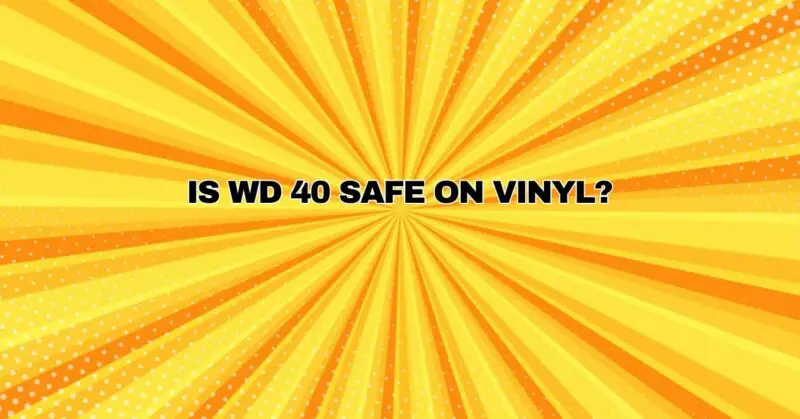Vinyl records have experienced a renaissance in recent years, captivating music enthusiasts with their analog warmth and nostalgic charm. Proper maintenance and care are crucial to preserving the quality of vinyl records, but myths and misconceptions regarding cleaning and maintenance methods abound. One persistent question in the vinyl community revolves around the safety of using WD-40 on vinyl records. In this comprehensive article, we will delve into the truth behind using WD-40 on vinyl, its potential risks, and whether it can be considered a safe and effective cleaning solution.
The Myth: Using WD-40 on Vinyl Records
The myth suggests that WD-40, a versatile and widely used lubricant and solvent, can be applied to vinyl records to clean or restore them. Proponents of this method claim that WD-40 can effectively remove dirt, dust, and even scratches from records, potentially improving their sound quality. The belief is rooted in the idea that WD-40’s penetrating properties can break down contaminants on the record’s surface.
The Reality: The Risks and Drawbacks of Using WD-40 on Vinyl
While WD-40 has a range of practical applications, it is not recommended for use on vinyl records due to several compelling reasons:
- Chemical Residue: WD-40 leaves behind a chemical residue when applied to surfaces. This residue can be difficult to remove entirely from the grooves of a vinyl record, potentially affecting the sound quality and introducing unwanted artifacts.
- Risk of Damage: Vinyl records are delicate and their grooves contain the audio information. WD-40’s chemical composition may interact with the vinyl material, leading to potential damage, warping, or degradation of the record. This could ultimately render the record unplayable or permanently harm its structural integrity.
- Increased Surface Noise: Rather than reducing surface noise, WD-40 residue can exacerbate the problem. The residue can attract dust and debris to the record’s surface, resulting in an increase in surface noise and static during playback, ultimately degrading the listening experience.
- Inadequate Cleaning: While WD-40 may temporarily mask surface imperfections, it does not address the root causes of vinyl surface issues, such as embedded contaminants or physical damage to the vinyl. Proper record cleaning solutions and methods are designed to address these issues more effectively.
Recommended Vinyl Record Cleaning Methods
To ensure the preservation of your vinyl records and maintain their sound quality, it is essential to use appropriate cleaning and maintenance methods:
- Dry Cleaning: Start by using a high-quality carbon fiber or anti-static brush to remove loose dust and debris from the record’s surface. Gently brush in a circular motion before and after each play.
- Wet Cleaning: For a more thorough cleaning, invest in a dedicated record cleaning solution and a microfiber cloth or a specialized record cleaning brush. Apply the solution as instructed and clean the record’s surface gently using a circular motion. Wipe off any excess solution with a clean, lint-free cloth.
- Record Cleaning Machines: For serious vinyl enthusiasts, consider using a record cleaning machine that employs vacuum suction to extract dirt and cleaning solution from the record’s grooves. These machines provide a comprehensive and effective cleaning process.
- Proper Storage: Store your vinyl records in anti-static inner sleeves and protective outer sleeves to prevent dust and potential damage. Keep them vertically in a cool, dry environment, away from direct sunlight and extreme temperature fluctuations.
- Handle with Care: Always handle vinyl records by their edges to avoid touching the playing surface, as oils and dirt from your fingers can transfer to the grooves.
Conclusion: Preserving Vinyl Records Safely
The temptation to use WD-40 as a quick and easy solution for vinyl record cleaning may be strong, but the potential risks and damage associated with this method far outweigh any perceived benefits. To ensure the longevity and sound quality of your vinyl collection, it is crucial to follow proper cleaning and preservation procedures using dedicated vinyl record cleaning products. By giving your records the care they deserve, you can continue to enjoy the unique, warm sound and immersive experience that vinyl records provide without compromising their quality or risking damage.


